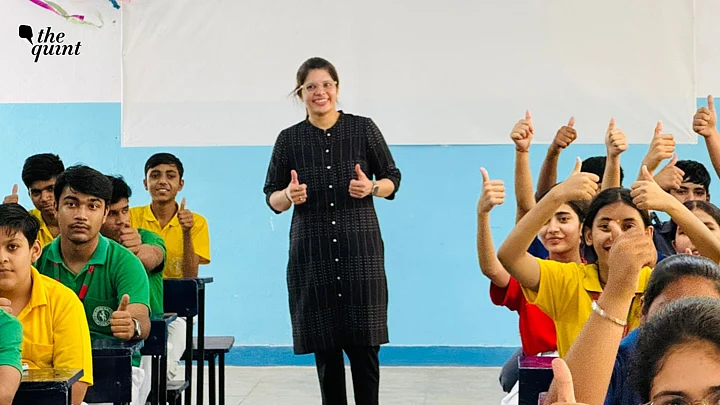This article has been authored by a member of The Quint. Our membership programme allows those who are not full-time journalists or our regular contributors to get published on The Quint under our exclusive 'Member's Opinion' section, along with many other benefits. Our membership is open and available to any reader of The Quint. Become a member today and send us your articles on membership@thequint.com.
We continue to fail our children—not because they lack ability or talent, but because we, as a society, still do not know how to recognise or nurture aspirations that fall outside our narrow definition of success. It is the year 2025, and while we proudly call ourselves a “skill-based” and “progressive” society, however our actions often contradict our words.
Children are achieving incredible things—some even receiving scholarships from the Ministry of Culture, one of the highest honours for excellence in the arts. But instead of celebrating these milestones, we downplay them. Why? Because somewhere deep down, we are still chasing just one version of success: ACADEMIC PERFECTION.
The dream we have imposed on every child looks the same:
A perfect 500 out of 500 in Class 10.
A flawless 720 out of 720 in NEET.
A one-size-fits-all journey toward engineering, medicine, or government services (and that has to be UPSC).
Our expectations towards our children are high, wherein the ambitions of the adults are imposed on their children.
And anything beyond that? That’s considered a distraction. A hobby, “a waste of time.”
But what about the dancer who finds solace and strength in movement? What about the child who stays up late not to revise formulas, but to write stories that move hearts?
Let me tell you the story of Sameer—a young lad who stayed true to his love for Kathak, despite being mocked by his peers and misunderstood by adults. His dedication earned him one of the 650 prestigious scholarships awarded by the Ministry of Culture this year. Among these, 14 went to Tribal/ST students, 23 to students from traditional art families, seven to differently-abled children, and three to creative writers. Sameer had made it. He’s on that list. And yet, many around him are still not proud because it's just a hobby, "a waste of time.”
Like many, Sameer is also aware of this judgement. He knows this may not be his lifelong profession. But it is his aspiration—something he wants to live, love, and breathe for a little while. Just a year. Just enough to follow a dream before diving into academic responsibilities again. And yet, he’s asked to wait, to step back, to “focus”—because the perfect 720 in NEET is all that seems to matter.
At what cost?
As adults, we’re always quick to take credit for our children’s academic accomplishments. The marks, the ranks, the medals—those we proudly display. But when it comes to their dreams, their passions, their gifts? We often respond with silence, discouragement, or worse, ridicule.
Have we ever stopped to think how many gifted children we’ve failed—not because they didn’t try, but because we didn’t let them?
The problem runs deeper than individual families. It’s systemic. We have created a culture where art is admired but not respected, where talent is appreciated but not encouraged. We praise children in annual functions, clap for them during school performances—but when they want to pursue those passions seriously, we ask them to be “realistic.”
We forget that aspiration doesn’t always mean ambition. Sometimes, it simply means doing something that makes a child feel alive. Something that gives them purpose. Something that teaches them discipline, joy, confidence, and self-worth.
We keep quoting “holistic development” and “New Education Policy reforms,” but do we really mean them? Or are we just decorating old thinking with new words? Let’s be honest—we’re afraid. Not of failure, but of freedom. A child who dares to dream beyond marks threatens the comfort of tradition. And so, we pull them back. We clip their wings. We tell them to fall in line.
But here’s a truth we must accept:
We can remove history from books, but not from hearts. The Mughals may be deleted from the syllabus, but the Taj Mahal still stands. And just like that, Sameer’s dance might not appear in textbooks, but his spirit will leave behind a legacy. A legacy built on courage, not conformance.
Only if he follows his passion!
As parents, educators, and community leaders, we owe it to our children to believe in their aspirations—not just the ones that look good on report cards, but the ones that light up their souls. Because true success is not just about becoming a doctor, engineer, or officer.
True success is becoming yourself.
Let children become.
(Juhi is a psychologist and educator from Hisar with over nine years of experience. She is the founder of Peace Point, and writes passionately about mental health and education, drawing from her professional journey to inspire awareness and change. This is an opinion piece, and the views expressed above are the author’s own. The Quint neither endorses nor is responsible for the same.)
